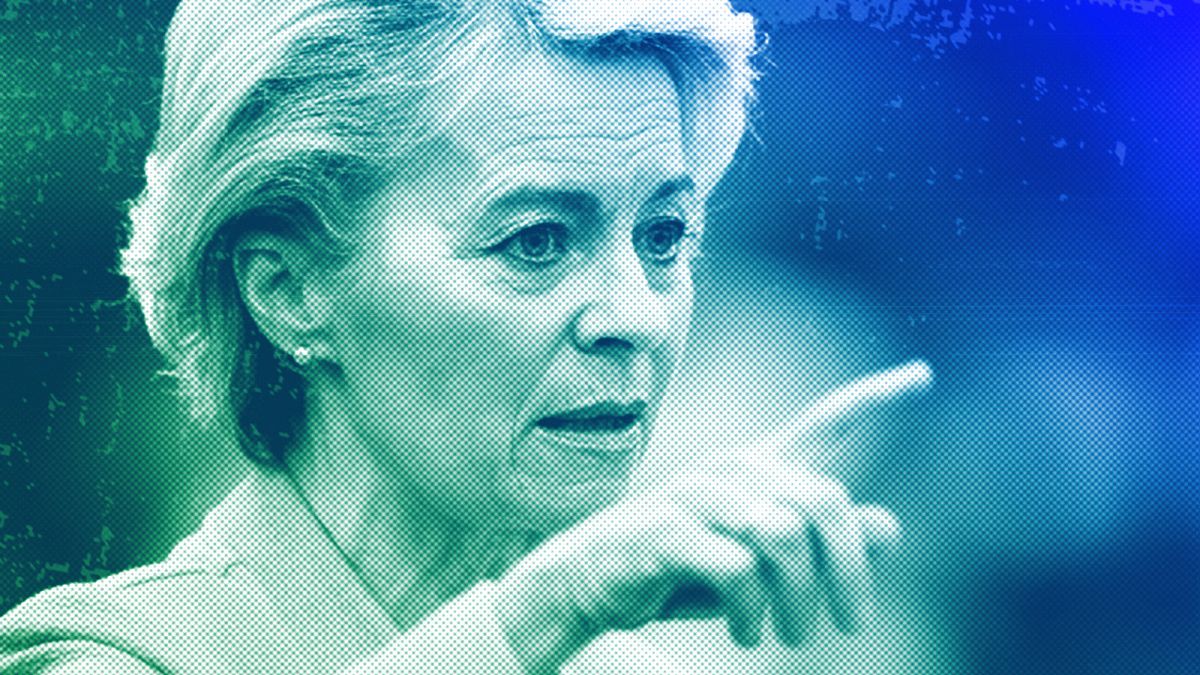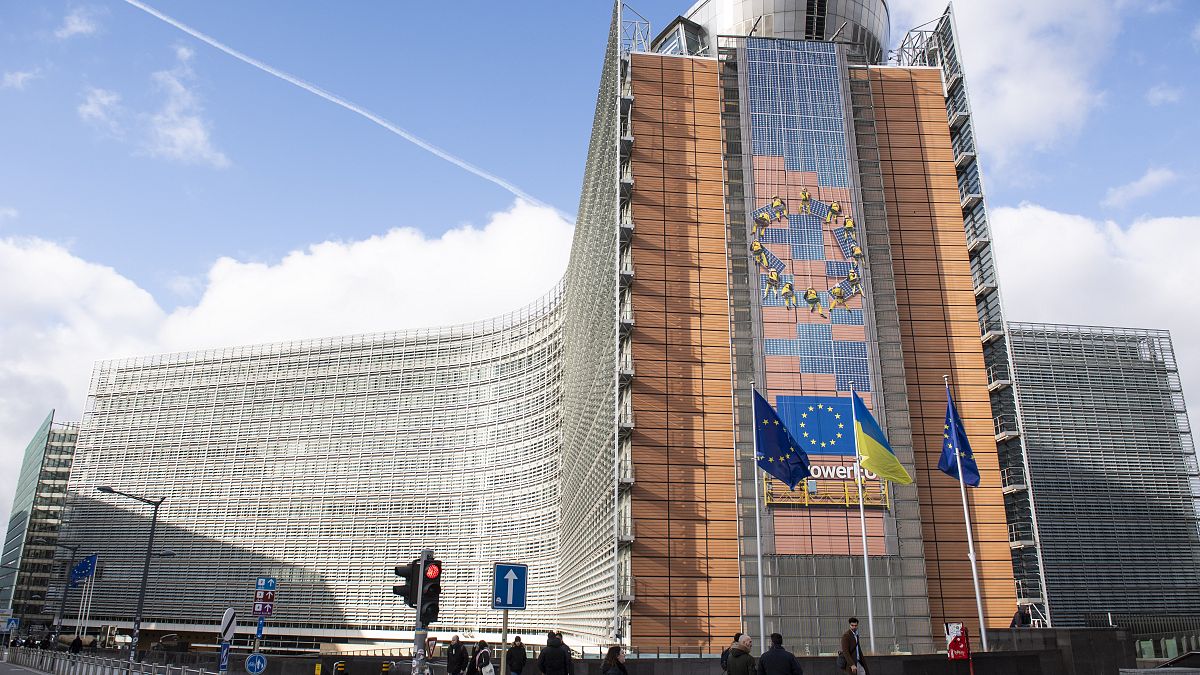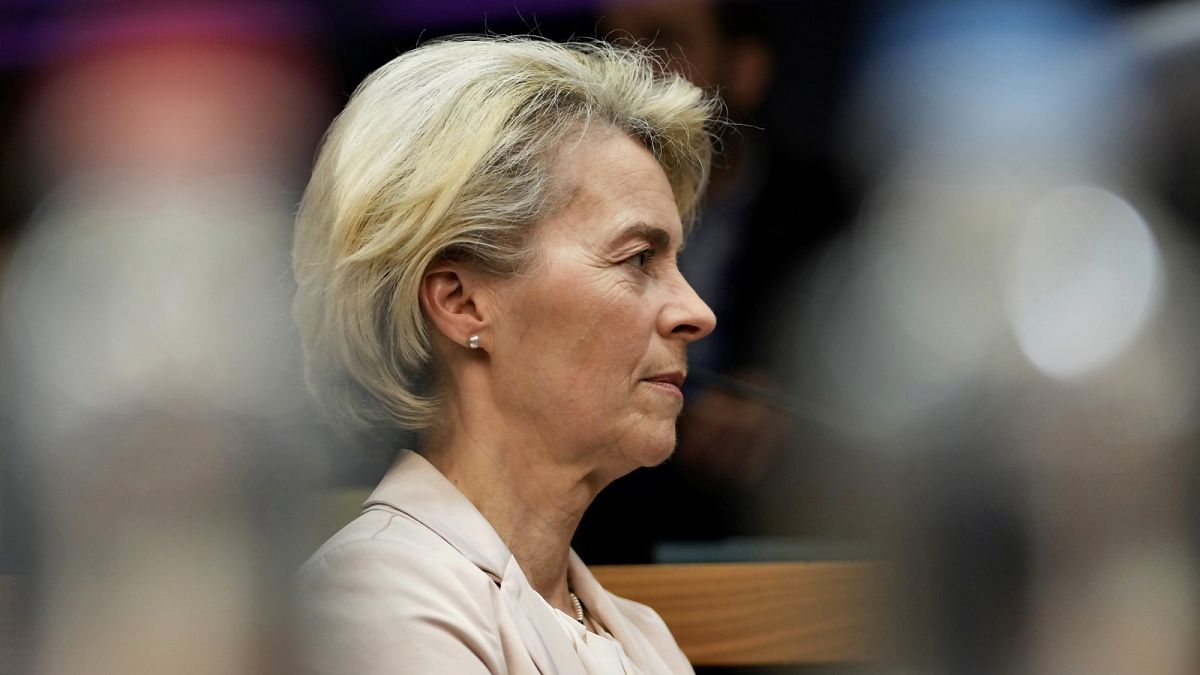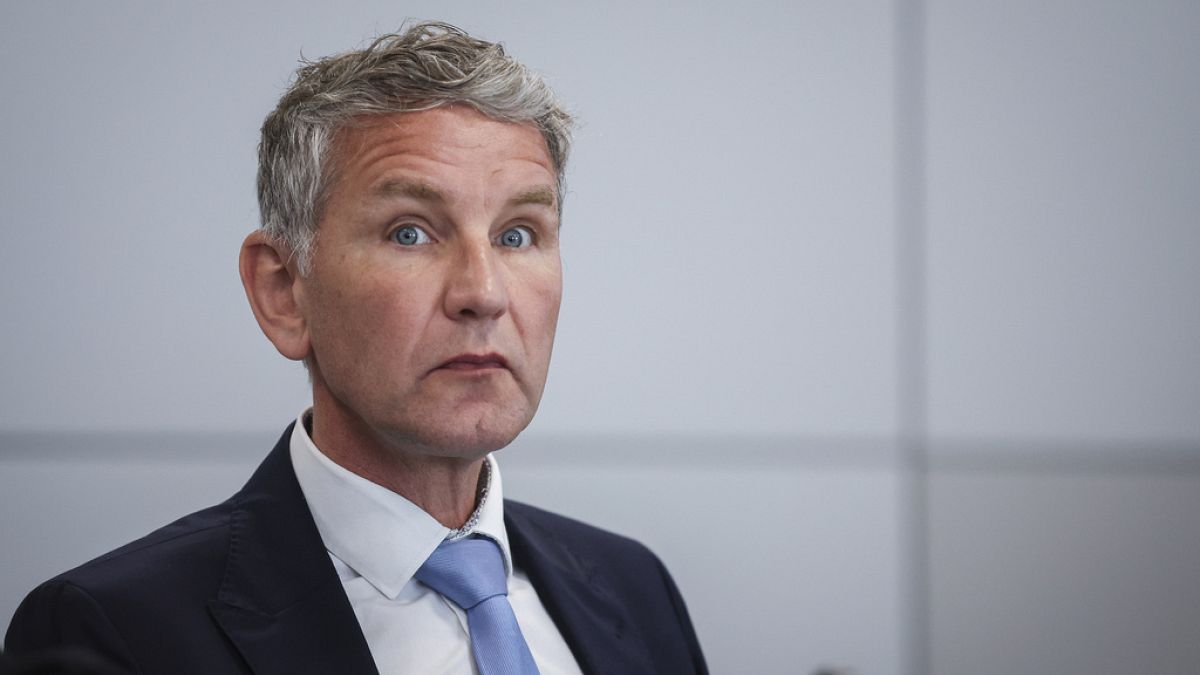World
Brussels begins review to possibly unfreeze €76 billion for Poland
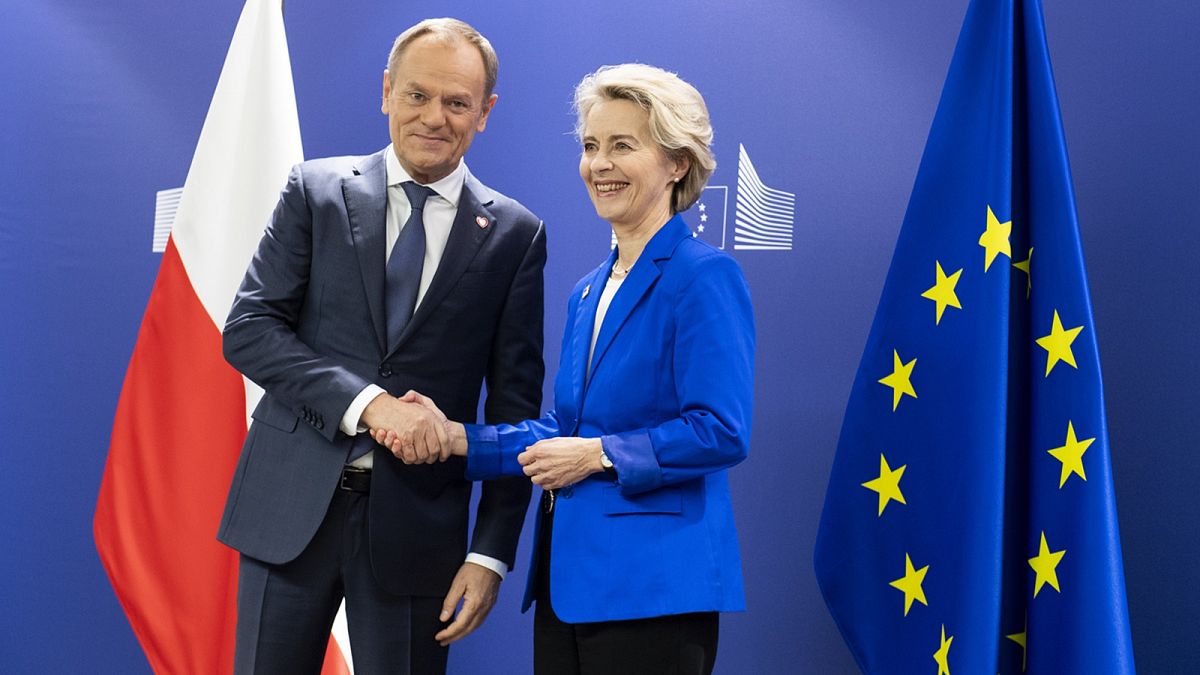
The European Commission has formally begun a three-month process to review the €76.5 billion of cohesion funds that Poland has been unable to access due to concerns over judicial independence.
The cash has always been a matter of top priority for Warsaw, one of the largest recipients of cohesion funds, which pay for development projects meant to modernise infrastructure and bridge the gap with richer member states.
But the sweeping judicial reform introduced by the previous hard-right government of the Law and Justice (PiS) party, which empowered the disciplinary chamber of the Supreme Court to punish magistrates according to their rulings, led Brussels to freeze the multi-billion envelope, fearing democratic backsliding would have a detrimental impact on the spending and oversight of European taxpayers’ money.
The new liberal three-party coalition led by Prime Minister Donald Tusk has vowed to reverse course and undo the overhaul, deemed illegal by the European Court of Justice in Luxembourg, and the effects it had on the country’s courts and judges.
Tusk’s government, appointed barely a month ago, is now taking the initiative to prove its pro-EU credentials: last week, the executive informed the European Commission that the legislative changes introduced so far are enough to fulfil the “horizontal enabling condition” on judicial independence attached to the €76.5 billion.
This condition is “cross-cutting,” meaning it covers all the different tranches that make up the financial package. Without it being met, no money can be released.
“Poland has thereby officially informed the Commission that it considers having fulfilled this enabling condition in the area of judicial independence,” a spokesperson for the Commission said on Monday afternoon.
“In the Commission, we’re now analysing the letter submitted by the Polish authorities to assess whether the enabling condition in this area is fulfilled and we’re in regular contact with the Polish authorities at both technical and political levels.”
The review of the request can take up to three months, or even longer if the Commission asks Warsaw for clarifications.
On top of the condition related to the judiciary, Poland has at least two “thematic conditions” – transport and healthcare – attached to the respective chapters in the €76.5 billion. None of them have been met yet, the spokesperson added.
Separately, Warsaw is trying to secure unhindered access to its COVID-19 recovery plan, a mix of €34.5 billion in low-interest loans and €25.3 billion in grants. Brussels had approved the Polish plan on the condition of fulfilling three “super milestones,” two of which are linked to the controversial judicial reform.
So far, the Commission has released €5.1 billion in “pre-financing” from the recovery and resilience plan to provide immediate liquidity for projects that can strengthen energy independence and decrease imports of Russian fossil fuels.
Tuks is pushing for more payments to be unblocked in the coming months.
However, his ambitious timeline could be derailed by President Andrzej Duda, who is politically close to PiS and often espouses similar views. Duda has openly threatened to protect his presidential prerogative and veto the premier’s fast-tracked plan to undo the judicial overhaul, which Duda had supported in the past.
The worsening standoff between Tusk and Duda has attracted considerable media interest and raised concerns of a constitutional crisis. Last week, Vera Jourová, the European Commission’s vice-president in charge of values of transparency, told Euronews that Brussels was “very closely” following the events in Warsaw and would not hesitate to “act” if the political clash led to breaches of EU law.

World
Canadian Nobel-winning author Alice Munro dies aged 92

Munro was renowned for her short stories, which focussed on the frailties of the human condition.
Alice Munro, the Nobel Prize-winning Canadian author known for her mastery of the short story, has died at the age of 92.
Munro died at her home in Port Hope, Ontario, publisher Kristin Cochrane, chief executive officer of McClelland & Stewart, said in a statement on Tuesday.
“Alice’s writing inspired countless writers … and her work leaves an indelible mark on our literary landscape,” Cochrane said.
Munro published more than a dozen collections of short stories, which she focused on the frailties of the human condition and set in the rural Ontario countryside where she grew up.
Awarded the International Booker Prize for her body of work in 2009, and the Nobel Prize in Literature in 2013, Munro was diagnosed with dementia about a decade ago and was living in a care home.
Canadian Prime Minister Justin Trudeau said the world had “lost one of its greatest storytellers”.
“A true literary genius … her short stories about life, friendship, and human connection left an indelible mark on readers,” he said.
Munro was born on July 10, 1931, in Wingham, Ontario. Her father raised foxes and poultry, while her mother was a smalltown teacher.
Munro decided she wanted to be a writer when she was 11, and never wavered in her career choice.
“I think, maybe I was successful in doing this because I didn’t have any other talents,” she once explained in an interview.
“I’m not really an intellectual,” Munro said. “There was never anything else that I was really drawn to doing, so nothing interfered in the way life interferes for so many people.”
“It always does seem like magic to me.”
Munro’s first story, The Dimensions of a Shadow, was published in 1950, while she was studying at the University of Western Ontario.
Munro was three times awarded the Governor General’s Award for fiction, the first for Dance of the Happy Shades, a collection of stories published in 1968. Who Do You Think You Are (1978) and The Progress of Love (1986) also won Canada’s highest literary honour.
Her short stories were often published in the pages of prestigious magazines, such as The New Yorker and The Atlantic. Her last collection of work, Dear Life, appeared in 2012.
The characters in Munro’s stories were often girls and women who led seemingly unexceptional lives but struggled with issues ranging from sexual abuse and stifling marriages to repressed love and the ravages of age.
She was often likened to Anton Chekhov, the 19th-century Russian known for his brilliant short stories – a comparison made by the Swedish Academy when it awarded her the Nobel Prize.
Calling Munro a “master of the contemporary short story”, the Academy also said: “Her texts often feature depictions of everyday but decisive events, epiphanies of a kind, that illuminate the surrounding story and let existential questions appear in a flash of lightning.”
World
The Boys Gets Early Season 5 Renewal

ad
World
Argentina reports its first single-digit inflation in 6 months as markets swoon and costs hit home
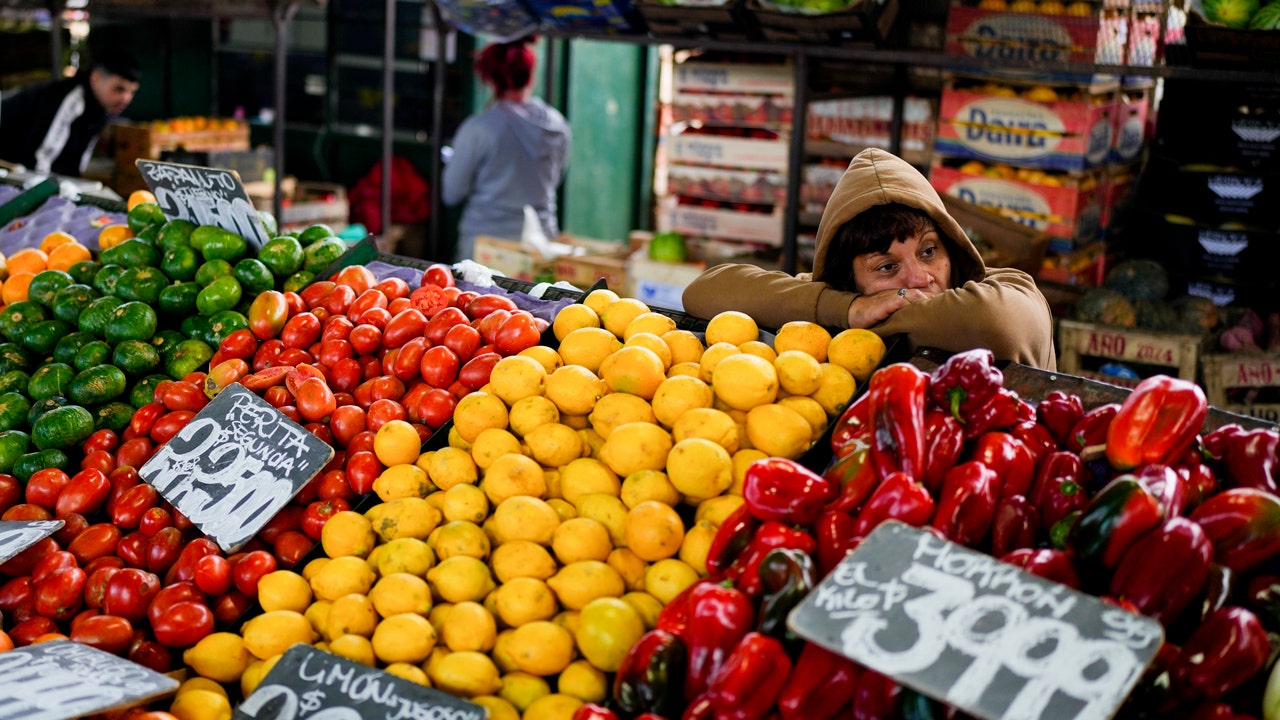
Argentina’s monthly inflation rate eased sharply to a single-digit rate in April for the first time in half a year, data released Tuesday showed, a closely watched indicator that bolsters President Javier Milei’s severe austerity program aimed at fixing the country’s troubled economy.
Prices rose at a rate of 8.8% last month, the Argentine government statistics agency reported, down from a monthly rate of 11% in March and well below a peak of 25% last December, when Milei became president with a mission to combat Argentina’s dizzying inflation, among the highest in the world.
ARGENTINA WILL GET NEXT INSTALLMENT OF BAILOUT AS IMF PRAISES MILEI’S AUSTERITY POLICIES
“Inflation is being pulverized,” Manuel Adorni, the presidential spokesperson, posted on social media platform X after the announcement. “Its death certificate is being signed.”
Although praised by the International Monetary Fund and cheered by market watchers, Milei’s cost-cutting and deregulation campaign has, at least in the short term, squeezed families whose money has plummeted in value while the cost of nearly everything has skyrocketed. Annual inflation, the statistics agency reported Tuesday, climbed slightly to 289.4%.
“People are in pain,” said 23-year-old Augustin Perez, a supermarket worker in the suburbs of Buenos Aires who said his rent had soared by 90% since Milei deregulated the real estate market and his electricity bill had nearly tripled since the government slashed subsidies. “They say things are getting better, but how? I don’t understand.”
A vendor waits for customers at the central market for fruit and vegetables in Buenos Aires, Argentina, Friday, May 10, 2024. (AP Photo/Natacha Pisarenko)
Milei’s social media feed in recent weeks has become a stream of good economic news: Argentine bonds posting some of the best gains among emerging markets, officials celebrating its first quarterly surplus since 2008 and the IMF announcing Monday it would release another $800 million loan — a symbolic vote of confidence in Milei’s overhaul.
“The important thing is to score goals now,” Milei said at an event Tuesday honoring former President Carlos Menem, a divisive figure whose success driving hyperinflation down to single digits through free-market policies Milei repeatedly references. “We are beating inflation.”
Even so, some experts warn that falling inflation isn’t necessarily an economic victory — rather the symptom of a painful recession. The IMF expects Argentina’s gross domestic product to shrink by 2.8% this year.
“You’ve had a massive collapse in private spending, which explains why consumption has dropped dramatically and why inflation is also falling,” said Monica de Bolle, a senior fellow at the Peterson Institute for International Economics who studies emerging markets. “People are worse off than they were before. That leads them to spend less.”
Signs of an economic slowdown are everywhere in Buenos Aires — the lines snaking outside discounted groceries, the empty seats in the city’s typically booming restaurants, the growing strikes and protests.
At an open-air market in the capital’s Liniers neighborhood, Lidia Pacheco makes a beeline for the garbage dump. Several times a week, the 45-year-old mother of four rummages through the pungent pile to salvage the tomatoes with the least mold.
“This place saves me,” Pacheco said. Sky-high prices have forced her to stick to worn-out clothes and shoes and change her diet to the point of giving up yerba mate, Argentina’s ubiquitous national drink brewed from bitter leaves. “Whatever I earn from selling clothes goes to eating,” she said.
Argentina’s retail sales in the first quarter of 2024 fell nearly 20% compared to the year before, a clip comparable to that of the 2020 pandemic lockdowns. The consumption of beef — an Argentine classic — dropped to its lowest level in three decades this quarter, the government reported, prompting panicked editorials about a crisis in Argentina’s national psyche.
“Now I buy pork and chicken instead,” said Leonardo Buono, 51-year-old hospital worker. “It’s an intense shock, this economic adjustment.”
Milei, a self-proclaimed “anarcho-capitalist” and former TV personality, warned his policies would hurt at first.
He campaigned brandishing a chainsaw to symbolize all the cutting he would do to Argentina’s bloated state, a dramatic change from successive left-leaning Peronist governments that ran vast budget deficits financed by printing money.
Promising the pain would pay off, he slashed spending on everything from construction and cultural centers to education and energy subsidies, from soup kitchens and social programs to pensions and public companies. He has also devalued the Argentine peso by 54%, helping close the chasm between the peso’s official and black-market exchange rates but also fueling inflation.
Inflation in the first four months of 2024 surged by 65%, the government statistics agency reported Tuesday. Prices in shops and restaurants have reached levels similar to those in the U.S. and Europe.
But Argentine wages have remained stagnant or declined, with the monthly minimum wage for regulated workers just $264 as of this month, with workers in the informal economy often paid less.
Today that sum can buy scarcely more than a few nice meals at Don Julio, a famous Buenos Aires steakhouse. Nearly 60% of the country’s 46 million people now live in poverty, a 20-year high, according to a study in January by Argentina’s Catholic University.
Even as discontent appears to rise, the president’s approval ratings have remained high, around 50%, according to a survey this month by Argentine consulting firm Circuitos — possibly a result of Milei’s success blaming his predecessors for the crisis.
“It’s not his fault, it’s the Peronists who ruined the country, and Milei is trying to do his best,” said Rainer Silva, a Venezuelan taxi driver who fled his own country’s economic collapse for Argentina five years ago. “He’s like Trump, everyone’s against him.”
Argentina’s powerful trade unions and leftist political parties have pushed back against Milei with weekly street protests, but haven’t managed to galvanize a broad swath of society.
That could change — last week, a massive protest against budget cuts to public universities visibly hit a nerve, drawing hundreds of thousands of people.
“The current situation is completely unsustainable,” said de Bolle, the economy expert.
-

 Politics1 week ago
Politics1 week agoHouse Dems seeking re-election seemingly reverse course, call on Biden to 'bring order to the southern border'
-

 Politics1 week ago
Politics1 week agoFetterman says anti-Israel campus protests ‘working against peace' in Middle East, not putting hostages first
-

 World1 week ago
World1 week agoGerman socialist candidate attacked before EU elections
-

 News1 week ago
News1 week agoUS man diagnosed with brain damage after allegedly being pushed into lake
-

 World1 week ago
World1 week agoGaza ceasefire talks at crucial stage as Hamas delegation leaves Cairo
-

 Politics1 week ago
Politics1 week agoRepublicans believe college campus chaos works in their favor
-

 World1 week ago
World1 week agoStand-in Jose Raul Mulino wins Panama presidential race
-

 World1 week ago
World1 week agoTech compliance reports, Newsletter

